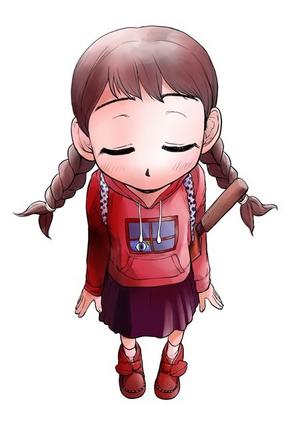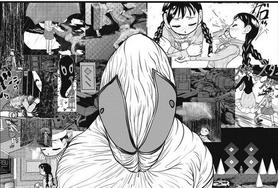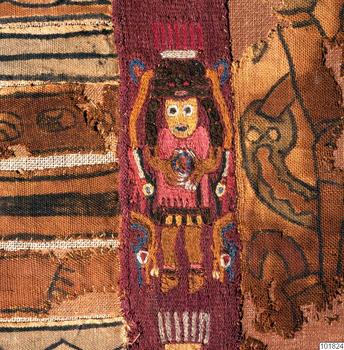>LeahCCinnamon No edit summary |
(added back the trans/nb thing and also the thing that said they were afraid of women) |
||
| Line 14: | Line 14: | ||
Fans speculate that she is young - anywhere from a young child to an early teen - although arguments can be made for any age. | Fans speculate that she is young - anywhere from a young child to an early teen - although arguments can be made for any age. | ||
Another fan speculation is that they are either nonbinary or trans, seeing as they use both bathrooms. They are also shown being afraid of women. | |||
Madotsuki is a playable character in the fighting game [[M.U.G.E.N]], and in fan games and artwork she is commonly portrayed wielding her iconic [[Effects#Knife|kitchen knife]]. | Madotsuki is a playable character in the fighting game [[M.U.G.E.N]], and in fan games and artwork she is commonly portrayed wielding her iconic [[Effects#Knife|kitchen knife]]. | ||
Revision as of 13:19, 15 July 2016
Madotsuki (窓付き) (pronounced /mɑˈdɒtsuː.kiː/) is the protagonist of Yume Nikki. She is one of the three characters in Yume Nikki with an official name, since characters require a name for the menu screen in RPG Maker games (the other two being Monoko and Monoe, specified in the filenames of their image files).
As with virtually everything else in the game, Madotsuki's identity and life are a mystery. Only what can be seen in-game can be considered canon, although there are many varying interpretations of her.
Fans speculate that she is young - anywhere from a young child to an early teen - although arguments can be made for any age.
Another fan speculation is that they are either nonbinary or trans, seeing as they use both bathrooms. They are also shown being afraid of women.
Madotsuki is a playable character in the fighting game M.U.G.E.N, and in fan games and artwork she is commonly portrayed wielding her iconic kitchen knife.
Name
The word "Madotsuki" means "window" (as in a box or envelope) or "aperture" (see its dictionary entry here ). The name appears in the menu as the name of the player-character, and (in the Japanese language version) is the only place where kanji appears in the game. All other text in the game—the game menus, instructions, the "menu has changed" notice, Nasu, and even the title screen of the game—is written using the hiragana alphabet.
'Madotsuki' is not a word used as a name in Japan - in fact, it may not even be her true name at all. It could be thought of as being a metaphor; more a description of the character as the 'player's window into the dream world' rather than a literal name. It could also be a way to preserve the game's theme of loneliness by giving the character a functional, dehumanizing name, rather than a personal name.
It is similar to the colloquial Japanese term for 'windower', a person who spends a long time looking out the window; that is, a daydreamer.
It has commonly been noted that when you reverse her romaji name (Madotuki in Kunrei-shiki romanization), it becomes Ikutodam: 行くと駄目 or 行くとダメ ("iku to dame"), a commonly used phrase that means "it is useless to go/leave."
Real Life
Madotsuki doesn't have much to do in her room. Her television set doesn't receive any channels, so she can only use it to play a single Famicom game, NASU. She can go outside on the balcony, but the balcony itself must be rather high as her view always seems to be blocked by fog.
Madotsuki's Dreams
Elements in Madotsuki's dream world seem to hint at her mental or emotional state. Some Effects seem to show her unhappiness. The knife, in particular, appears to hint at her misery. However, the player ultimately controls Madotsuki -- it is unknown whether she would use the knife on her own.
Since many dreams are disturbing when shared, Madotsuki may just be a typical lucid dreamer trying to find a release from her sadness by exploiting her dreams for fun and self-discovery.
Fan Speculation
Script error: The function "Main" does not exist.
See the Theories page for theories regarding Madotsuki and Yume Nikki in general.
Paracas Similarity
An image depicting what probably is a “sacrificial maid” has been found on a very ancient poncho:
This one basically reafirms all the other evidence related to what was considered “Aztec” (such as the Aztec Rave Monkey and the floating magicians in The Nexus) to be really influenced by this culture.
And who knows? Maybe Kikiyama himself looked at this image to create Madotsuki.



